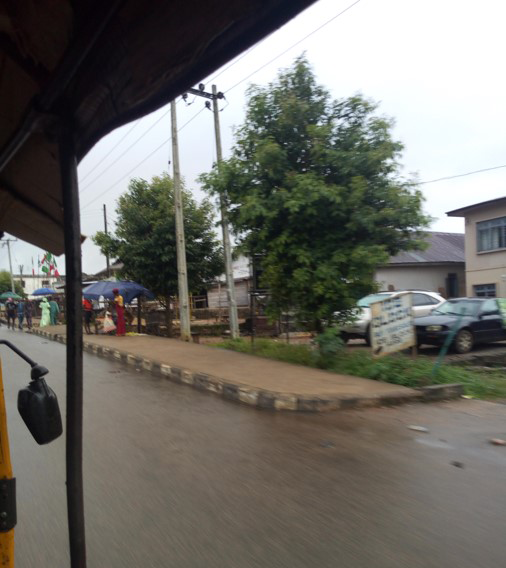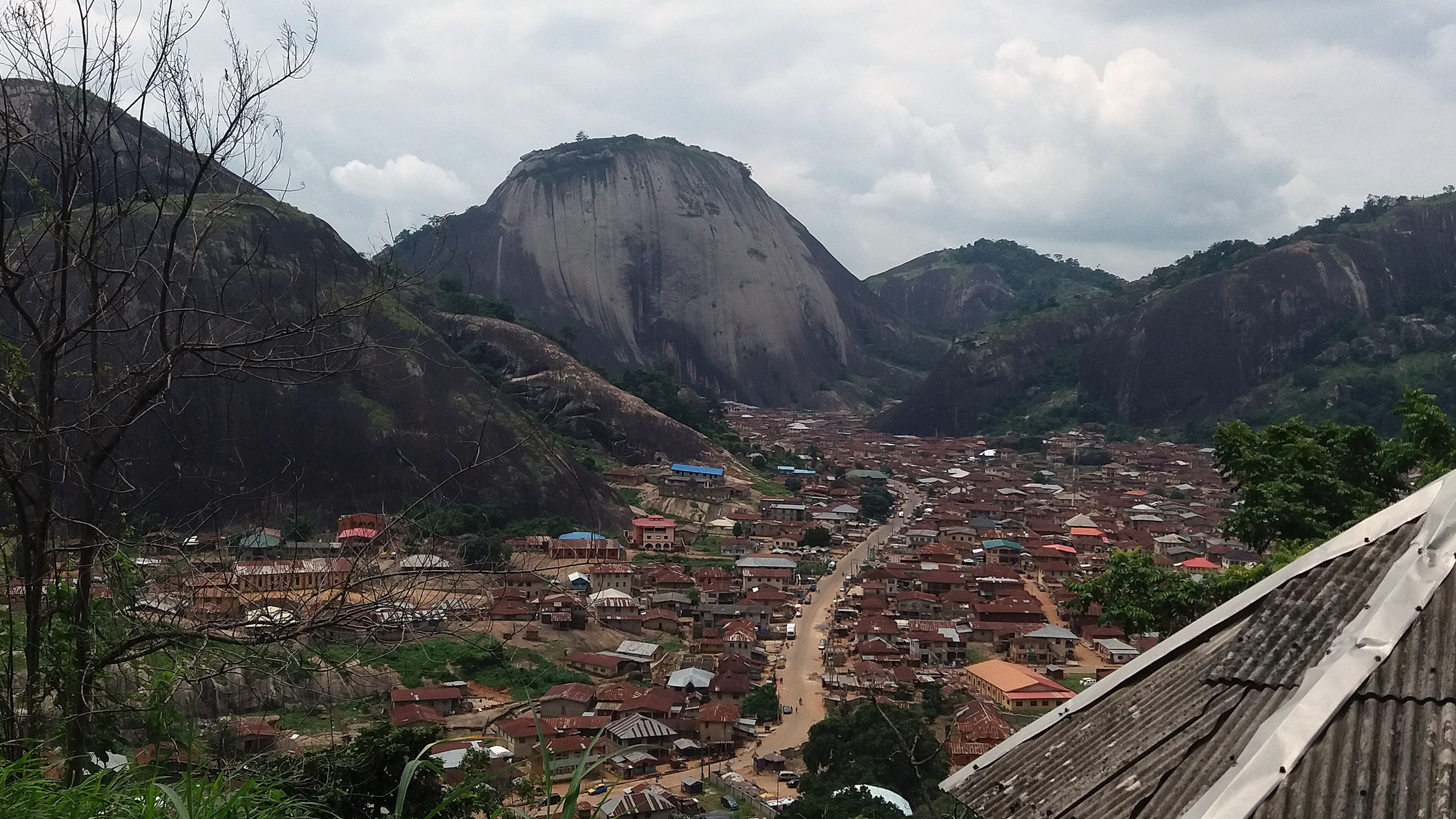A town with a big sky, bigger at night but you won’t notice that about it first. There’s a slow, quiet, comfortable ambience, even with all the small changes springing up within the town and the people roaming the streets of an ancient, uncompromising place.
The town is surrounded by and set on hills. Whichever route you take to get in from the outskirts, there are mountains in the distance, quiet and growing trees at their summits. They get closer and closer and then they’re gone, they’re behind you, you’re in them. You’re dipping and heaving gently in the vehicle; on both sides of the road trees flit by interspersed with brief images of small communities set in red earth. Ahead, the trees give way, the road opens out and you’re in Ondo.
From one route, Ondo town begins with the generic roadside shops, where you hear the mix of Yoruba, pidgin and English spoken, and the red dust typical of the southwest. From the other you enter on tightly tarred roads closer to the centre of the town, Yaba. Yaba is a single street that branches into narrow alleys, lined from one end to the other with pavement spacing the houses and churches and banks and restaurants away from the roads. Further in, the roads grow narrower and more crowded.

Ondo town is all of this, and it has also been renamed a city.
People make a town or any place into what it is or is to be, and the people of Ondo decided that their town with all its multiple layers of history, its recent post-colonial past and the sprigs of modernization growing within it, deserved something, something befitting its complexity, and the plans it had for its future. A name change was that thing—or better put, a status change.
So what does it cost a town to become a city?
In 2015, to become a city, Ondo set a vision for itself. A written proclamation was solemnized at an event held at the stadium. Thus the town became a city. It was the first step in bringing forth a dream of its people, the benefits of prosperous cityhood: improving the infrastructure of the town, the commerce and the educational facilities, a project undertaken by and borne on the shoulders of its government.
Some things have changed since that time. The town recorded progress in a few of the goals of cityhood: There’s the new mega-schools that strike one as private owned at first with their easy, bright colours, the main market was organized into stalls, and for a while, there was free health care for pregnant mothers and children under the age of five.

But, as is often the case, the great hurdle of any progress is not really in starting but in maintaining it, and building on what has already been established. The momentum of change in Ondo has almost ceased, and some of the improvements have almost disappeared, like the school buses and the ICT facilities that were abandoned, or that were superfluous in a place that struggles to maintain electricity consistently. The market stalls proved impractical, and were abandoned for the more accessible road-side set-ups; the free health care program was not sustainable and was slowly defunded. It was the classic problem—good intentions and drive, but not the foresight, or political stability, to see these improvements through to the end.
The name change offered another benefit beyond a tangible socio-economic change. It was also a proclamation of Ondo’s status in the eyes of its people, reflecting the dignity its people believe it deserves. A way to show outsiders that Ondo isn’t just a relic from the past; a definite starting point toward the development of the 21st-century modernisation they hoped would be in their future.
But is Ondo a city just because it calls itself one? What are the requirements of a city? Was it accurate, was it necessary, to make this change? Did it do the job it was meant to? And beyond that, why can’t the name Ondo town be appropriate in describing what really exists in Ondo.
The technical requirements for a place to be classified as a city vary all over the world. However if Ondo is a city, is all of the area included? Does the city include the parts of its outskirts consisting of small farming communities with no direct access to the benefits of Ondo’s vision of modernisation? Are they too city-dwellers, or are they not included in the cityhood it strives for? Do only the people that live close to the tightly tarred roads count as such?
Local governments are not just demarcations on a map used to allocate jurisdiction, federal funding and such; in Nigeria, they serve an additional purpose, they are almost a manner of identifying oneself with one’s heritage and ancestry. When one is asked, “What village are you from”—everybody can trace their roots to a village—what that question really means is “What local government is your ancestral hometown in?” And village is the significant part of this question, or in Ondo’s case, the town. Even metropolitan cities are cut up into local governments, but the consequence and respect accorded them isn’t the same for less developed states.
That’s part of the explanation for why the name change was so important to the people; it was to distance their town from the prejudice toward the word “town” as a backwater place, or a relic. But that name change also indicates how these old issues of status and consequence will persist, side by side with all the newly established modernization.
Ondo is a city in name and hope, not in structure, not in character, not in development at least, not the entirety of it. It is still a town. It could have kicked off its vision without needing to change its name. It could have waited for the changes to have been put in place and to stabilise for a few years before taking the step to become a city, if it ever chose at all to do so.
As it is now, Ondo still has all the markings and character of a town. The leisurely pace of the people, its rural elements alongside the parts undergoing urbanization, or regressing from urbanization, and even the fact that it tried for a while to be a city, all point to the heart of the matter—Ondo is a town. Town is the best descriptor for what exists in Ondo, and perhaps also for the hope that it has in its future, for the vision of 2015 that prompted it to stop referring to itself as a town at all.






